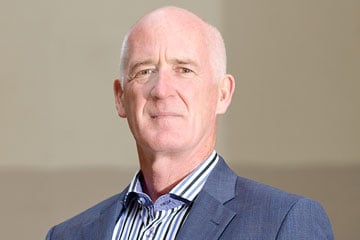Lawyers could see an uptick in human rights complaints related to cannabis after the legalization of recreational use on Oct. 17, although the province of Ontario says that human rights protections for people with disabilities or addictions remain the same as before.

Lawyers could see an uptick in human rights complaints related to cannabis after the legalization of recreational use on Oct. 17, although the province of Ontario says that human rights protections for people with disabilities or addictions remain the same as before.
One cannabis-related human rights claim that’s likely to evolve through litigation over the next couple of years is the claim that an employer failed to accommodate cannabis addiction issues or cannabis use disorder, which is a recognized disability, says Doug MacLeod, principal of MacLeod Law Firm, a labour and employment firm in Toronto.
“Being a recreational cannabis user doesn’t give you any human rights protection; it’s only when it rises to the level of an addiction,” MacLeod says. “I think that when people get fired, they go to talk to a lawyer, and the lawyer comes up with different potential legal claims. I think this will be a new potential claim that lawyers will try out.”
MacLeod says these cases may take years to get to trial, given the need for medical evidence and experts if the courts have stringent expectations for specialist opinions.
He says that while most employees might not be able to afford the costs of medical experts, unions might file grievances on behalf of their members, so the first battleground for this type of case is likely to be a grievance arbitration.
If the court doesn’t require a lot of evidence, cannabis-related addiction could become a “staple claim” in employee termination cases, MacLeod says. “We’ll find out from the courts how easy it is to make out this claim.
“What evidence of addiction do you have to lead? What signs of addiction are needed to impose a duty to inquire on the employer?”
The Ontario Human Rights Commission released a new policy statement on Oct. 11 around human rights implications of cannabis legalization at work, in housing and in public places, as well as a guide as to when there is a “duty to accommodate” cannabis use. It addresses cannabis use in public parks, retail stores, restaurants, schools, hotels, hospitals, retirement homes, balconies, condos, apartments and workplaces.
“Where I am currently seeing a lot of human rights complaints are, for one, the accommodation of medical marijuana,” says Neena Gupta, a partner at Gowling WLG in Waterloo, Ont., whose practice deals predominantly with labour, employment and human rights issues.
“[T]hat growth has been steadily increasing in 2010 when case law made it clear that not treating medical cannabis like any other drug was, in fact, a violation of human rights.”
The OHRC says smoking or vaping is banned in enclosed workplaces, a rule that applies both to tobacco and medical or recreational cannabis, and that employers can accommodate employees by allowing breaks in outside spaces.
The OHRC cited tribunals and court decisions that said workers in safety-sensitive jobs might be barred from impairment by employers. The OHRC also notes that while an employer generally doesn’t have the right to know the “nature” of someone’s disability or treatment, a doctor’s note verifying cannabis use might be necessary.
Gupta says she saw at least one employer work to accommodate medical marijuana with changes such as adding air filters, resulting in a notable improvement in the worker’s performance.
“The second area is an increase in people disclosing that they have a substance use disorder,” she says.
“When I first started [in] this area of practice, I would say almost 95 per cent of disclosing a substance use disorder would be disclosing alcohol consumption. Because drug consumption— including recreational amounts of cannabis — was illegal, people were very uncomfortable disclosing cannabis use because you would then be disclosing that you are, in fact, breaking the Criminal Code of the country.”
Sean Bawden, a partner in the employment group at Kelly Santini LLP in Ottawa, says employers are hurrying to revamp their smoking, drug and alcohol policies in light of the new rules around cannabis. Employers that don’t reach out to legal counsel may run into problems, he says, if the policies are too “blunt” or “ham-fisted.”
“The problem is that cannabis is two things: It is a recreational drug, similar to alcohol, but it’s also a prescription for medication,” Bawden says.
“So, the problem with a blanket ban on cannabis is that some people have a prescription to consume cannabis as a medication for a disability, and the Human Rights Code says employers cannot discriminate on the basis of a disability.”
He says he believes more complaints will emerge, mainly because “employers are going to be a little bit more anxious to enforce those zero-tolerance policies.”
Natasha Persaud, a partner at Formative LLP in Toronto says in the past, she’s dealt with issues surrounding equal treatment sought by a medical marijuana user smoking outside venues such as casinos, for example. Those issues might not be as relevant going forward, she says, but there may be other issues to deal with.
“Presumably, it will be handled the same way that smoking is in those areas,” Persaud says. “But cannabis is unique in the sense that its odour could be stronger.”








